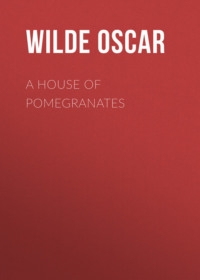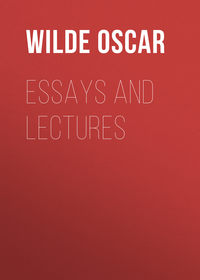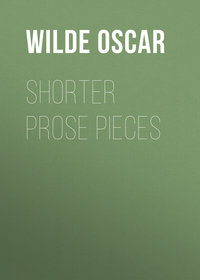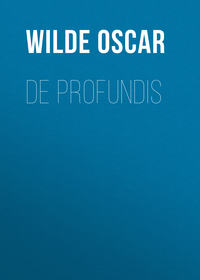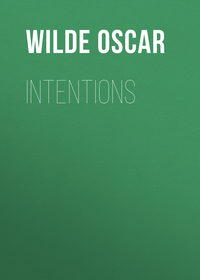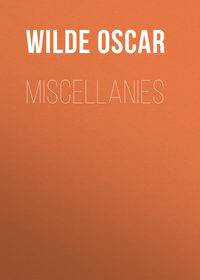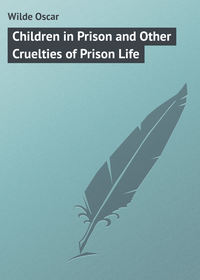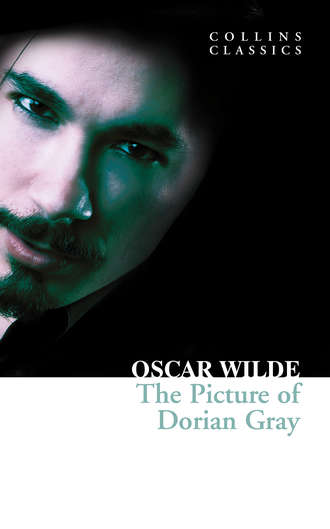
Полная версия
The Picture of Dorian Gray

History of Collins
In 1819, Millworker William Collins from Glasgow, Scotland, set up a company for printing and publishing pamphlets, sermons, hymn books and prayer books. That company was Collins and was to mark the birth of HarperCollins Publishers as we know it today. The long tradition of Collins dictionary publishing can be traced back to the first dictionary William published in 1824, Greek and English Lexicon. Indeed, from 1840 onwards, he began to produce illustrated dictionaries and even obtained a licence to print and publish the Bible.
Soon after, William published the first Collins novel, Ready Reckoner, however it was the time of the Long Depression, where harvests were poor, prices were high, potato crops had failed and violence was erupting in Europe. As a result, many factories across the country were forced to close down and William chose to retire in 1846, partly due to the hardships he was facing.
Aged 30, William’s son, William II took over the business. A keen humanitarian with a warm heart and a generous spirit, William II was truly ‘Victorian’ in his outlook. He introduced new, up-to-date steam presses and published affordable editions of Shakespeare’s works and Pilgrim’s Progress, making them available to the masses for the first time. A new demand for educational books meant that success came with the publication of travel books, scientific books, encyclopaedias and dictionaries. This demand to be educated led to the later publication of atlases and Collins also held the monopoly on scripture writing at the time.
In the 1860s Collins began to expand and diversify and the idea of ‘books for the millions’ was developed. Affordable editions of classical literature were published and in 1903 Collins introduced 10 titles in their Collins Handy Illustrated Pocket Novels. These proved so popular that a few years later this had increased to an output of 50 volumes, selling nearly half a million in their year of publication. In the same year, The Everyman’s Library was also instituted, with the idea of publishing an affordable library of the most important classical works, biographies, religious and philosophical treatments, plays, poems, travel and adventure. This series eclipsed all competition at the time and the introduction of paperback books in the 1950s helped to open that market and marked a high point in the industry.
HarperCollins is and has always been a champion of the classics and the current Collins Classics series follows in this tradition – publishing classical literature that is affordable and available to all. Beautifully packaged, highly collectible and intended to be reread and enjoyed at every opportunity.
Life & Times
About the Author
Oscar Wilde had an erudite way with words and is often quoted to this day. He was known as a sharp wit, delivering lines that cut through conversation making him at once popular and vilified, depending on the nature of those at the receiving end. Sadly for Wilde, it was his enemies that got the better of him. At a time when it was illegal for men to have sexual relations with other men, Wilde was imprisoned and exiled for his sexual preferences.
Wilde wrote only one novel, The Picture of Dorian Gray, as well as poetry and short stories, but he was first and foremost a playwright, and a very successful one at that. He is perhaps best known for his play The Importance of Being Ernest and his most well-known poem is The Ballad of Reading Gaol, which he wrote following his incarceration.
Wilde was born into a privileged Dublin family. He had a fairly uneventful childhood, but performed very well at university, studying at Magdalen College, Oxford. It was as a student that he began to use his high intellect to put others down, and as a result many of his peers took a dislike to him. He also began to cultivate an image for himself that could be described as outrageously camp, in both appearance and conduct. It was the behaviour of homosexuals such as Wilde that led to the word ‘gay’ earning its modern meaning, because people began using the term in describing this tendency for gaiety in demeanour. It was a euphemism that mutated over time. Needless to say, Wilde’s effeminate and showy image, although entertaining to some, was thought immoral by polite Victorian society. For every person who celebrated his outlandish posturing there was always someone else who wanted him to fall from grace.
Despite Wilde’s sexual orientation he did his best to conceal it for fear of prosecution. This included his becoming betrothed and producing two sons. One of his sons sadly perished in World War I. The other became an author himself, but he concealed his identity for many years due to his father’s reputation and following his disgrace and downfall.
Wilde finally capitulated to his homosexual desires when he met a boy named Robert Ross and fell in love. He had undoubtedly known about his leanings but managed to constrain himself until Ross appeared. Wilde is known to have relished the excitement that came from the danger of his situation. He had a number of further homoerotic encounters and became involved with a group of homosexual men who were secretly campaigning for reforms in the law to decriminalize their behaviour.
Unfortunately for Wilde he had begun an affair with the son of the Marquess of Queensbury and this proved his undoing. The Marquess blamed Wilde for perverting his son’s sexuality and was determined to see Wilde prosecuted for his crimes. Ironically it was Wilde who took the Marquess to court for criminal libel, such was Wilde’s overconfidence. Things backfired though, and Wilde found himself in the dock for ‘gross indecency’. He was sentenced to two years hard labour, which he served at Pentonville, Wandsworth and Reading prisons.
Following his manumission Wilde took a new name and fled to Europe as Sebastian Melmoth. His experience as a convict had affected his health badly and he survived for only three more years, dying at the age of 46 in Paris. Had his health been more vigorous, Wilde may well have seen a time when society forgave him for his indiscretions, for his talent as a writer was undisputed. As it was, he passed away before the dust had settled and a long time before homosexuality became decriminalized.
The Picture of Dorian Gray
Dorian Gray is a young and handsome man who becomes obsessed with the idea of beauty when he has his portrait painted. He makes a wish that he might remain forever youthful and that the portrait of him will age over time instead.
Soon after the wish is made he commits his first sin and discovers that the portrait has already begun to change in response to his amorality rather than to time passing. Gray realizes that he has license to do whatever he likes, so he does. Over the next couple of decades Gray commits all manner of sins, including murder, until the portrait has become a hideous visage. Yet, Gray himself has not changed in appearance since he made his wish. Eventually Gray becomes tormented by his own behaviour and attacks the painting with a knife. He is found stabbed to death, while the painting is restored to its original appearance.
Wilde used the device of the painting to address various agendas. The most obvious message is that there is always a price to be paid for iniquitous and self indulgent behaviour, and that it will catch up with you in the end. The painting is also a comment about the confessional in the Catholic Church. Like the priest behind the screen, the painting absorbs Gray’s sins, so that he can walk away and continue with his debauchery.
Most of all, the story of Dorian Gray is autobiographical. Wilde saw that his own behaviour was leading him down a path that could only end in disaster. The novel is a portent of his own abrupt end, yet it seems that he could not help himself and prevent it from happening.
Dorian Gray might ordinarily be perceived as a villain and a cad, who ultimately gets his just desserts, but as a personification of Wilde’s inner demons he becomes a figure of pity and inevitable doom. The moral of the story is ‘be careful what you wish for’ as Dorian Gray allows himself to be overrun by his own wickedness by deferring responsibility for his actions.
People are usually called into check by the consequences of their own misdemeanours, so that they learn empathy and sympathy. Without consequences, selfish inclinations are allowed to run riot and become amplified until the person has no control. That is what happens to Dorian Gray, and that is what Wilde is saying about his own plight. As a privileged and successful celebrity Wilde is allowed free-rein to do what he likes with impunity, but he can see that sooner or later he will come unstuck.
Visit www.AuthorTracker.com for exclusive information on your favorite HarperCollins author.
Table of Contents
Cover Page
Title Page
History of Collins
Life & Times
THE PREFACE
CHAPTER 1
CHAPTER 2
CHAPTER 3
CHAPTER 4
CHAPTER 5
CHAPTER 6
CHAPTER 7
CHAPTER 8
CHAPTER 9
CHAPTER 10
CHAPTER 11
CHAPTER 12
CHAPTER 13
CHAPTER 14
CHAPTER 15
CHAPTER 16
CHAPTER 17
CHAPTER 18
CHAPTER 19
CHAPTER 20
CLASSIC LITERATURE: WORDS AND PHRASES
Copyright
About the Publisher
THE PREFACE
The artist is the creator of beautiful things.
To reveal art and conceal the artist is art’s aim.
The critic is he who can translate into another manner or a new material his impression of beautiful things.
The highest, as the lowest, form of criticism is a mode of autobiography.
Those who find ugly meanings in beautiful things are corrupt without being charming. This is a fault.
Those who find beautiful meanings in beautiful things are the cultivated. For these there is hope.
They are the elect to whom beautiful things mean only Beauty.
There is no such thing as a moral or an immoral book.
Books are well written, or badly written. That is all.
The nineteenth century dislike of Realism is the rage of Caliban seeing his own face in a glass.
The nineteenth century dislike of Romanticism is the rage of Caliban not seeing his own face in a glass.
The moral life of man forms part of the subject-matter of the artist, but the morality of art consists in the perfect use of an imperfect medium. No artist desires to prove anything. Even things that are true can be proved.
No artist has ethical sympathies. An ethical sympathy in an artist is an unpardonable mannerism of style.
No artist is ever morbid. The artist can express everything.
Thought and language are to the artist instruments of an art.
Vice and virtue are to the artist materials for an art.
From the point of view of form, the type of all the arts is the art of the musician. From the point of view of feeling, the actor’s craft is the type.
All art is at once surface and symbol.
Those who go beneath the surface do so at their peril.
Those who read the symbol do so at their peril.
It is the spectator, and not life, that art really mirrors.
Diversity of opinion about a work of art shows that the work is new, complex, and vital.
When critics disagree the artist is in accord with himself.
We can forgive a man for making a useful thing as long as he does not admire it. The only excuse for making a useless thing is that one admires it intensely.
All art is quite useless.
CHAPTER 1
The studio was filled with the rich odour of roses, and when the light summer wind stirred amidst the trees of the garden, there came through the open door the heavy scent of the lilac, or the more delicate perfume of the pink-flowering thorn.
From the corner of the divan of Persian saddle-bags on which he was lying, smoking, as was his custom, innumerable cigarettes, Lord Henry Wotton could just catch the gleam of the honey-sweet and honey-coloured blossoms of a laburnum, whose tremulous branches seemed hardly able to bear the burden of a beauty so flame-like as theirs; and now and then the fantastic shadows of birds in flight flitted across the long tussore-silk curtains that were stretched in front of the huge window, producing a kind of momentary Japanese effect, and making him think of those pallid jade-faced painters of Tokyo who, through the medium of an art that is necessarily immobile, seek to convey the sense of swiftness and motion. The sullen murmur of the bees shouldering their way through the long unmown grass, or circling with monotonous insistence round the dusty gilt horns of the straggling woodbine, seemed to make the stillness more oppressive. The dim roar of London was like the bourdon note of a distant organ.
In the centre of the room, clamped to an upright easel, stood the full-length portrait of a young man of extraordinary personal beauty, and in front of it, some little distance away, was sitting the artist himself, Basil Hallward, whose sudden disappearance some years ago caused, at the time, such public excitement, and gave rise to so many strange conjectures.
As the painter looked at the gracious and comely form he had so skilfully mirrored in his art, a smile of pleasure passed across his face, and seemed about to linger there. But he suddenly started up, and, closing his eyes, placed his fingers upon the lids, as though he sought to imprison within his brain some curious dream from which he feared he might awake.
‘It is your best work, Basil, the best thing you have ever done,’ said Lord Henry, languidly. ‘You must certainly send it next year to the Grosvenor. The Academy is too large and too vulgar. Whenever I have gone there, there have been either so many people that I have not been able to see the pictures, which was dreadful, or so many pictures that I have not been able to see the people, which was worse. The Grosvenor is really the only place.’
‘I don’t think I shall send it anywhere,’ he answered, tossing his head back in that odd way that used to make his friends laugh at him at Oxford. ‘No: I won’t send it anywhere.’
Lord Henry elevated his eyebrows, and looked at him in amazement through the thin blue wreaths of smoke that curled up in such fanciful whirls from his heavy opium-tainted cigarette. ‘Not send it anywhere? My dear fellow, why? Have you any reason? What odd chaps you painters are! You do anything in the world to gain a reputation. As soon as you have one, you seem to want to throw it away. It is silly of you, for there is only one thing in the world worse than being talked about, and that is not being talked about. A portrait like this would set you far above all the young men in England, and make the old men quite jealous, if old men are ever capable of any emotion.’
‘I know you will laugh at me,’ he replied, ‘but I really can’t exhibit it. I have put too much of myself into it.’
Lord Henry stretched himself out on the divan and laughed.
‘Yes, I knew you would; but it is quite true, all the same.’
‘Too much of yourself in it! Upon my word, Basil, I didn’t know you were so vain; and I really can’t see any resemblance between you, with your rugged strong face and your coal-black hair, and this young Adonis, who looks as if he was made out of ivory and rose-leaves. Why, my dear Basil, he is a Narcissus, and you—well, of course you have an intellectual expression, and all that. But beauty, real beauty, ends where an intellectual expression begins. Intellect is in itself a mode of exaggeration, and destroys the harmony of any face. The moment one sits down to think, one becomes all nose, or all forehead, or something horrid. Look at the successful men in any of the learned professions. How perfectly hideous they are! Except, of course, in the Church. But then in the Church they don’t think. A bishop keeps on saying at the age of eighty what he was told to say when he was a boy of eighteen, and as a natural consequence he always looks absolutely delightful. Your mysterious young friend, whose name you have never told me, but whose picture really fascinates me, never thinks. I feel quite sure of that. He is some brainless, beautiful creature, who should be always here in winter when we have no flowers to look at, and always here in summer when we want something to chill our intelligence. Don’t flatter yourself, Basil: you are not in the least like him.’
‘You don’t understand me, Harry,’ answered the artist. ‘Of course I am not like him. I know that perfectly well. Indeed, I should be sorry to look like him. You shrug your shoulders? I am telling you the truth. There is a fatality about all physical and intellectual distinction, the sort of fatality that seems to dog through history the faltering steps of kings. It is better not to be different from one’s fellows. The ugly and the stupid have the best of it in this world. They can sit at their ease and gape at the play. If they know nothing of victory, they are at least spared the knowledge of defeat. They live as we all should live, undisturbed, indifferent, and without disquiet. They neither bring ruin upon others, nor ever receive it from alien hands. Your rank and wealth, Harry; my brains, such as they are—my art, whatever it may be worth; Dorian Gray’s good looks– we shall all suffer for what the gods have given us, suffer terribly.’
‘Dorian Gray? Is that his name?’ asked Lord Henry, walking across the studio towards Basil Hallward.
‘Yes, that is his name. I didn’t intend to tell it to you.’
‘But why not?’
‘Oh, I can’t explain. When I like people immensely I never tell their names to any one. It is like surrendering a part of them. I have grown to love secrecy. It seems to be the one thing that can make modern life mysterious or marvellous to us. The commonest thing is delightful if one only hides it. When I leave town now I never tell my people where I am going. If I did, I would lose all my pleasure. It is a silly habit, I dare say, but somehow it seems to bring a great deal of romance into one’s life. I suppose you think me awfully foolish about it?’
‘Not at all,’ answered Lord Henry, ‘not at all, my dear Basil. You seem to forget that I am married, and the one charm of marriage is that it makes a life of deception absolutely necessary for both parties. I never know where my wife is, and my wife never knows what I am doing. When we meet—we do meet occasionally, when we dine out together, or go down to the Duke’s—we tell each other the most absurd stories with the most serious faces. My wife is very good at it—much better, in fact, than I am. She never gets confused over her dates, and I always do. But when she does find me out, she makes no row at all. I sometimes wish she would; but she merely laughs at me.’
‘I hate the way you talk about your married life, Harry,’ said Basil Hallward, strolling towards the door that led into the garden. ‘I believe that you are really a very good husband, but that you are thoroughly ashamed of your own virtues. You are an extraordinary fellow. You never say a moral thing, and you never do a wrong thing. Your cynicism is simply a pose.’
‘Being natural is simply a pose, and the most irritating pose I know,’ cried Lord Henry, laughing; and the two young men went out into the garden together, and ensconced themselves on a long bamboo seat that stood in the shade of a tall laurel bush. The sunlight slipped over the polished leaves. In the grass white daisies were tremulous.
After a pause, Lord Henry pulled out his watch. ‘I am afraid I must be going, Basil,’ he murmured, ‘and before I go, I insist on your answering a question I put to you some time ago.’
‘What is that?’ said the painter, keeping his eyes fixed on the ground.
‘You know quite well.’
‘I do not, Harry.’
‘Well, I will tell you what it is. I want you to explain to me why you won’t exhibit Dorian Gray’s picture. I want the real reason.’
‘I told you the real reason.’
‘No, you did not. You said it was because there was too much of yourself in it. Now, that is childish.’
‘Harry,’ said Basil Hallward, looking him straight in the face, ‘every portrait that is painted with feeling is a portrait of the artist, not of the sitter. The sitter is merely the accident, the occasion. It is not he who is revealed by the painter; it is rather the painter who, on the coloured canvas, reveals himself. The reason I will not exhibit this picture is that I am afraid that I have shown in it the secret of my own soul.’
Lord Henry laughed. ‘And what is that?’ he asked.
‘I will tell you,’ said Hallward; but an expression of perplexity came over his face.
‘I am all expectation, Basil,’ continued his companion, glancing at him.
‘Oh, there is really very little to tell, Harry,’ answered the painter; ‘and I am afraid you will hardly understand it. Perhaps you will hardly believe it.’
Lord Henry smiled, and, leaning down, plucked a pink-petalled daisy from the grass, and examined it. ‘I am quite sure I shall understand it,’ he replied, gazing intently at the little golden white-feathered disk, ‘and as for believing things, I can believe anything, provided that it is quite incredible.’
The wind shook some blossoms from the trees, and the heavy lilac-blooms, with their clustering stars, moved to and fro in the languid air. A grasshopper began to chirrup by the wall, and like a blue thread a long thin dragon-fly floated past on its brown gauze wings. Lord Henry felt as if he could hear Basil Hallward’s heart beating, and wondered what was coming.
‘The story is simply this,’ said the painter after some time. ‘Two months ago I went to a crush at Lady Brandon’s. You know we poor artists have to show ourselves in society from time to time, just to remind the public that we are not savages. With an evening coat and a white tie, as you told me once, anybody, even a stockbroker, can gain a reputation for being civilised. Well, after I had been in the room about ten minutes, talking to huge overdressed dowagers and tedious Academicians, I suddenly became conscious that some one was looking at me. I turned half-way round, and saw Dorian Gray for the first time. When our eyes met, I felt that I was growing pale. A curious sensation of terror came over me. I knew that I had come face to face with some one whose mere personality was so fascinating that, if I allowed it to do so, it would absorb my whole nature, my whole soul, my very art itself. I did not want any external influence in my life. You know yourself, Harry, how independent I am by nature. I have always been my own master; had at least always been so, till I met Dorian Gray. Then—but I don’t know how to explain it to you. Something seemed to tell me that I was on the verge of a terrible crisis in my life. I had a strange feeling that Fate had in store for me exquisite joys and exquisite sorrows. I grew afraid, and turned to quit the room. It was not conscience that made me do so; it was a sort of cowardice. I take no credit to myself for trying to escape.’
‘Conscience and cowardice are really the same things, Basil. Conscience is the trade-name of the firm. That is all.’
‘I don’t believe that, Harry, and I don’t believe you do either. However, whatever was my motive—and it may have been pride, for I used to be very proud—I certainly struggled to the door. There, of course, I stumbled against Lady Brandon. “You are not going to run away so soon, Mr. Hallward?” she screamed out. You know her curiously shrill voice?’


